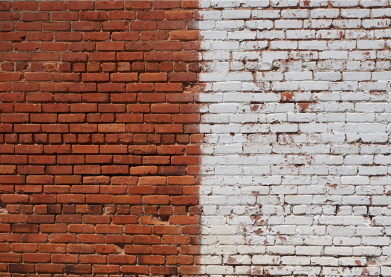When the Associated Press officially called the presidential election last Saturday, New York City erupted in celebration. People flooded the streets, cheering, banging pots and pans, honking horns, and calling loved ones to bring in the moment. At the same time, there were pockets in our city, state, and country where over 70 million Americans hung their heads in defeat. Even within the Democratic party, a rift appeared between the moderates and progressives when Republicans flipped seats in the House of Representatives. However we slice it, we can agree that this was an especially contentious election that leaves deep divisions in our country.
This week’s Torah portion, Chayei Sarah, provides us with an example of how to come together across major differences. Abraham’s sons Isaac and Ishmael bury their father after what at very best could be considered a distant relationship with each other (Genesis 25:9). In a less favorable view, Isaac and Ishmael had a relationship shaped by jealousy and favoritism. Isaac was Sarah’s precious child of old age, and the inheritor of Abraham’s possessions and covenant while Ishmael was born to Hagar, Abraham and Sarah’s Egyptian maidservant.
In fact, the last time Isaac and Ishmael were in the same place before their father’s burial was at a huge family party for Isaac four chapters earlier. There, Ishmael and his mother Hagar are banished from the family over Abraham’s inheritance (Genesis 21:7-13). In this period of separation, both Isaac and Ishmael endure traumatic events, Isaac nearly sacrificed by his father in the Akeidah narrative (Genesis 22) and Ishmael crying out in the wilderness (Genesis 21:17), without each other to bear witness or lend support.
Isaac and Ishmael, although brothers, belonged to two separate nations — a metaphor I heard about Democratic and Republican voters last week as I flipped through election coverage. This wasn’t enough, however, to keep Isaac and Ishmael apart when it was time to bury their father. Dignifying the deceased is one of the greatest deeds we can perform in Judaism because the deceased can’t pay us back. This holy act superseded all the baggage between the brothers as they put their father Abraham to his eternal rest. In the context of a divided nation, I wonder what those holy acts are that can lift us above our differences. As we transition from one presidency to another, still in the midst of a pandemic, I pray that we can overcome our divisions to work for the dignity and safety of all people as Isaac and Ishmael did Abraham.
A few verses after Isaac and Ishmael bury Abraham, Ishmael passes away (Genesis 25:17). The Torah describes it that he “breathed his last and died,” a specific phrase that is also used to describe the deaths of Abraham, Isaac, Jacob, and Moses’s brother Aaron. For Ishmael, the son of a maidservant, banished from his home, always second to his brother Isaac, and turned into a separate nation, the Torah puts him in elite company. The Talmud goes on to say that the phrase “breathed his last and died” is only used for righteous people (Bava Batra 16b). The fact that Ishmael is included in this company can teach us that even those from whom we are divided have the capacity to be righteous people. Whether we identify more with Isaac or Ishmael, Democrats, Progressive Democrats, or Republicans, may we come together in this time of division as Isaac and Ishmael did, work for the dignity of all people as they did for their father Abraham, and bring out our collective righteousness in the process.

